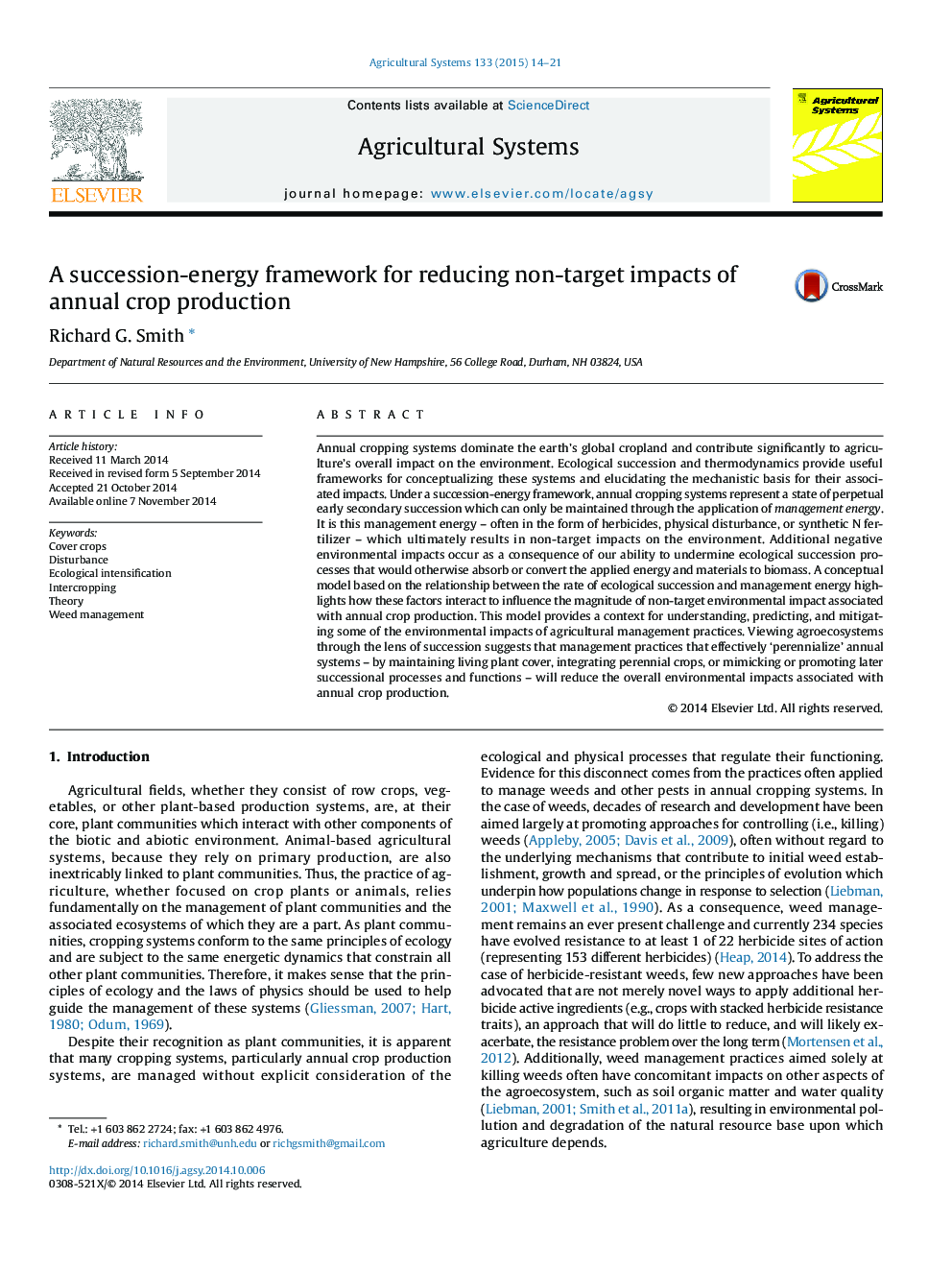| کد مقاله | کد نشریه | سال انتشار | مقاله انگلیسی | نسخه تمام متن |
|---|---|---|---|---|
| 6368608 | 1623237 | 2015 | 8 صفحه PDF | دانلود رایگان |
- Annual cropping systems create conditions that initiate secondary succession.
- Succession theory provides a useful framework for conceptualizing these systems.
- Rate of succession determines quantity of management energy inputs.
- Non-target environmental impacts are related to management energy.
- 'Perennializing' annual crop systems will reduce environmental impacts.
Annual cropping systems dominate the earth's global cropland and contribute significantly to agriculture's overall impact on the environment. Ecological succession and thermodynamics provide useful frameworks for conceptualizing these systems and elucidating the mechanistic basis for their associated impacts. Under a succession-energy framework, annual cropping systems represent a state of perpetual early secondary succession which can only be maintained through the application of management energy. It is this management energy - often in the form of herbicides, physical disturbance, or synthetic N fertilizer - which ultimately results in non-target impacts on the environment. Additional negative environmental impacts occur as a consequence of our ability to undermine ecological succession processes that would otherwise absorb or convert the applied energy and materials to biomass. A conceptual model based on the relationship between the rate of ecological succession and management energy highlights how these factors interact to influence the magnitude of non-target environmental impact associated with annual crop production. This model provides a context for understanding, predicting, and mitigating some of the environmental impacts of agricultural management practices. Viewing agroecosystems through the lens of succession suggests that management practices that effectively 'perennialize' annual systems - by maintaining living plant cover, integrating perennial crops, or mimicking or promoting later successional processes and functions - will reduce the overall environmental impacts associated with annual crop production.
Graphical Abstract
Journal: Agricultural Systems - Volume 133, February 2015, Pages 14-21
